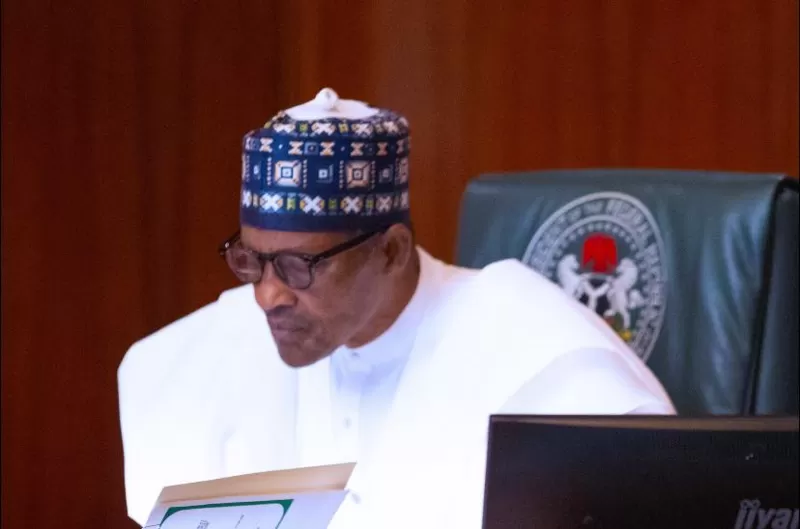The Buhari-Dangote war on malaria
The inauguration of the Nigeria End-Malaria Council (NEMC) by President Muhammadu Buhari has raised expectations that a big push would be made towards freeing our country from the killer ailment. The 16-member council on fighting malaria is chaired by the country’s top business mogul, Alhaji Aliko Dangote. Former NFF scribe, Amadu presents 22-point agenda to […]

President Muhammadu Buhari
The inauguration of the Nigeria End-Malaria Council (NEMC) by President Muhammadu Buhari has raised expectations that a big push would be made towards freeing our country from the killer ailment.
The 16-member council on fighting malaria is chaired by the country’s top business mogul, Alhaji Aliko Dangote.
- Former NFF scribe, Amadu presents 22-point agenda to rescue Nigerian football
- Buhari and Nigeria’s climate challenge ahead COP27
President Buhari said, at the inauguration of the council, that he was deeply worried that malaria is still a major public health problem in Nigeria. He quoted a 2021 report by the World Health Organisation (WHO) which says that Nigeria accounts for 27 per cent of malaria cases and 32 per cent of deaths caused by malaria in the world.
It is important to note that earlier efforts to tackle malaria such as the Nigeria’s Malaria Strategic Plan (NMSP) and Roll Back Malaria in Nigeria and Africa at best yielded mixed results. Although the World Health Organisation (WHO), other reporting agencies and stakeholders have acclaimed the efforts, malaria persists worldwide.
This is despite more funding for malaria control from Global Fund for AIDS, Tuberculosis and Malaria, the US President’s Malaria Initiative and the World Bank Booster Programme for Malaria and the participation of the private sector.
President Buhari said the new effort by Nigeria to check malaria is part of an Africa-wide initiative rooted in a declaration by the African Union. A continent-wide approach is more comprehensive. It is alarming that the five types of parasites that cause malaria after infected mosquitoes bite humans have developed resistance to most current treatment regimes. The problem of fake and substandard drugs aggravates the situation.
As it is evident that most of the types of organisms which cause malaria have developed resistance to current treatment regimes, the Dangote-led council may build on the achievements of the presidential committee that was appointed in 2005 to produce Artemisinin Combination Therapy (ACTs) locally. For instance, the farms for the cultivation of five varieties of Artemisia annua in Jigawa, Plateau, Ogun, Enugu, Cross River, Taraba, Kano, Nasarawa, Gombe and Katsina states could be expanded to cultivate the plant massively. Its leaves were successfully processed into various products for the effective treatment of malaria.
The Department of Traditional, Complementary and Alternative Medicine in the Federal Ministry of Health; the Raw Materials Research and Development Council and the Nigerian Medicinal Plants Development Company (NMPDC) which were involved in the Artemisia annuum process can be relevant in the efforts of the Dangote-led council in taming malaria.
Beside expanding the farms, a large-scale processing plant can be established for extracting the Artemisinin content from the leaf biomass to locally produce affordable anti-malarial drugs. This will save foreign exchange, create jobs and make Nigeria the hub for the production of Artemisinin-based anti-malarial drugs (ACTs) in West Africa.
Luckily, the Chairman of the End-Malaria Council, Alhaji Aliko Dangote, has a strong knack and reputation for looking inwards to source raw materials for his businesses. His council can apply the same principle in sourcing the requisite raw materials for the production of anti-malarial drugs in the country.
A massive media public sensitisation programme on the importance of keeping our surroundings clean will helpfully complement the availability and affordability of anti-malarial drugs in tackling the menace.
Health inspectors recruited by state and local governments to encourage cleanliness in homes and communities may be included in the Buhari-Dangote war on malaria. This will make it a grassroot-oriented exercise and enhance its chances of success.
Salisu Na’inna wrote from Dambatta, Kano State.
